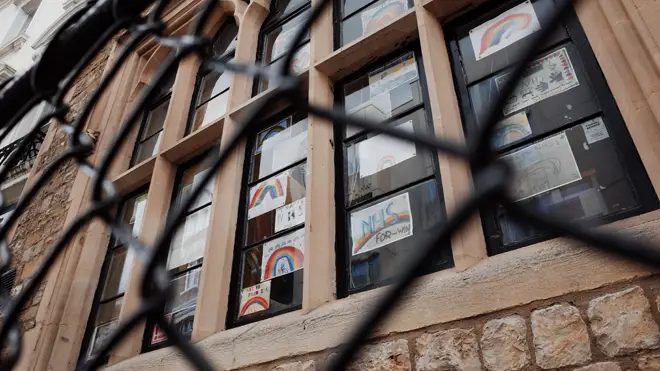
Natasha Devon 6pm - 9pm
12 March 2021, 08:37 | Updated: 12 March 2021, 09:15
Covid decimates health or social care support for children with Special Educational Needs and Disabilities
The majority of the UK’s 350,000 children with special educational needs and disabilities have had little or no health or social care support through the Covid lockdown, figures show.
Research by the Nuffield Foundation shows that 80% didn’t get the therapy they need and 75% weren’t given any social care. That’s despite these children having Educational Health Care Plans that means they’re legally entitled to support.
The report shows that even when schools have been open, many Special Educational Needs children were unable to attend, 40% of families are still shielding.
Government advice has always been that children entitled to support, should be in school. But Amy Skipp, researcher from the Nuffield Foundation, says it wasn’t backed up with clear guidance:

“The national policy has shown little understanding or regard for pupils with Special Educational Needs and Disabilities and their families.”
“It is impossible for most special schools and colleges to provide support without extra trained staff, space and resources. Given that not all these pupils can be in school full-time – special schools and colleges need extra help to support these children at home”.
Elizabeth Stanley’s 18-year-old daughter Isabelle is supposed to have support seven days a week, that disappeared last March:
“We went literally overnight from having seven days of support to nothing, absolutely nothing.
“She’s put weight on because she’s not walking as much as she used to, I haven’t got time to do physio exercises at home, she has water out of a syringe, that takes 20 minutes. Just looking after her physically, is intense”.
This is on top of the battle parents with SEND children face to get the right support for their youngsters in the first place. They’ve described a confusing system that’s difficult to navigate.
Leanne Dunbar has three children with additional needs. Her eldest son was never given an official diagnosis, and so was never entitled to extra support:
“I feel like I’ve failed him, because he hasn’t got what he needs to be a functioning adult.
“Early identification is huge. My other son was well supported and he’s doing well. School has been excellent in supporting us with getting his autism diagnosis, but it’s taken a long time”.
“With my daughter, I’m starting that fight again and it is so hard. My worry is what happens when she goes to secondary school, it’s like she’s being set up to fail”.
Another mum, Julie Nixon, tells LBC she spent thousands of pounds to get her son Adam a full diagnosis and applied privately for an EHCP it took four years: “You’re made to feel useless when you know that you’re doing all you’re doing for your children and you just want someone to believe you and it’s such a relief when you’re believed.
The pandemic has added to an overburdened system that was already plagued with delays, there are concerns that without reform to funding and a plan to help families with SEND children, the problems will continue to build.
A Department for Education spokesperson said: “We know the impact of the pandemic may be greatest on vulnerable children and young people, including those with EHCPs. That’s why we kept schools open to them where possible during restrictions.”
“Our new one-off £302 million Recovery Premium will build on the Pupil Premium to further support pupils who need it most. Specialist settings will also receive a higher rate of funding from this Premium in recognition of their higher running costs.
“Additionally, both special schools and alternative provision will be able to access funding to provide summer schools and the National Tutoring Programme.”